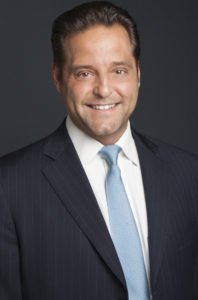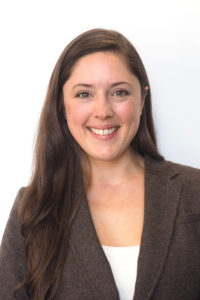The quality of our interior environment — where we spend more than 90 percent of our time, according to the Environmental Protection Agency — can have a huge impact on our health and well-being.
“Experts know that indoor spaces can pose health risks,” said Jeff McCubbin, dean of CSU’s College of Health and Human Sciences. “Excessive noise, artificial light, poor nutrition and sedentary lifestyles can damage health or affect well-being.”
CSU is hosting a lecture and workshop this month on the WELL Building Standard by representatives of Delos, a company that aims to transform indoor environments by placing health and wellness at the center of design and construction decisions. The lecture and workshop, being held Oct. 25-26, are part of the Mary Scott Lecture Series and the Re-Envision Colorado State initiative. The events are sponsored by the Department of Design and Merchandising, the Institute for the Built Environment and the College of Health and Human Sciences.
 “Faculty in the College of Health and Human Sciences are exploring solutions to these issues,” McCubbin said. “We are pleased to have experts on the WELL Building Standard visit CSU.”
“Faculty in the College of Health and Human Sciences are exploring solutions to these issues,” McCubbin said. “We are pleased to have experts on the WELL Building Standard visit CSU.”
Delos has launched the International WELL Building Institute, which has developed a holistic approach to health and well-being in interior places where we live, work and play by using the WELL Building Standard, which consists of principles grounded in a body of medical research. The WELL Building Standard focuses on seven major areas: air, water, nourishment, light, fitness, comfort and mind.
WELL is grounded in a body of medical research that explores the connection between buildings and their occupants.
“There is a wonderful alignment between what issues interior designers and WELL building experts care about,” said CSU Interior Design Professor Stephanie Clemons. “Both care about the people inhabiting the space, their multifaceted needs and preferences. Both believe that buildings should be developed with people’s health and wellness at the center of the design. Both realize that the design of interior spaces impacts lives. It is exciting to have the founder of the International Well Building Institute and his colleagues join us on campus to dialogue about designing for health, wellness and well-being in interior spaces.”
Since the release of the WELL Building Standard two years ago, more than 270 projects encompassing 57 million square feet are now registered or certified in 23 countries across six continents, with the U.S., China, Australia, France, Canada and the U.K. leading the healthy building movement.
Learn more
The lecture and workshop are opportunities to learn more about the WELL Building Standard:
Workshop: On Tuesday, Oct. 25, from 2:30 to 6:30 p.m. in the Aylesworth Hall Design Lab, Room C102, 1100 Meridian Ave., design/build industry professionals, community members, faculty, staff and students are invited to attend a free workshop titled, “In-Depth Review of the WELL Building Standard” led by Jessica Rose Cooper, executive vice president and director of sustainability for Delos Solutions. Advance registration is required and attendance is limited. To register for the workshop, click here.
Lecture: On Wednesday, Oct. 26, from 4:30 to 6 p.m. in the Linda Carlson Classroom in the Avenir Museum of Design and Merchandising, 216 E. Lake St., Paul Scialla, founder and CEO of Delos and the International WELL Building Institute, will give a lecture on “Understanding the WELL Building Standard.” The workshop is free and open to the campus and community. No RSVP is required.
About the speakers

Paul Scialla, founder and CEO, Delos, and founder, International WELL Building Institute
After 18 years on Wall Street, including 10 at Goldman Sachs as a partner, Paul Scialla’s interest in sustainability and altruistic capitalism led him to found Delos, which is merging the world’s largest asset class – real estate – with the world’s fastest growing industry – wellness. Scialla is also the founder of the International WELL Building Institute, which administers the WELL Building Standard globally to improve human health and well-being through the built environment; a member of the Board of Directors for the Chopra Foundation; and a founding board member of the JUST Capital Foundation.

Jessica Rose Cooper, executive vice president of Delos Solutions and director of sustainability, Delos
A longtime member of the architecture and design industry, Jessica Rose Cooper has experience in project management, design and construction, as well as in developing and executing educational programs for the green building community. Cooper’s work seeks to improve health and wellness through the spaces in which we live and work, while minimizing the impact on our natural environment. In collaboration with the research and development work being done by Delos, the Delos Solutions team offers advisory consulting services using the WELL Building Standard to help infuse the interior environment with strategies that enhance the health, wellness and productivity of occupants.
The Mary Scott Lecture Series at CSU is made possible by a charitable trust endowed by Mary E. Scott to the College of Health and Human Sciences upon her death in 1984. Throughout her career as a social worker and YMCA administrator, Scott was committed to advancing the lives of individuals and families. She served on CSU’s governing board from 1961 to 1968, and was presented with the honorary degree Doctor of Humane Letters in 1973.
The Department of Design and Merchandising and the Institute for the Built Environment are part of CSU’s College of Health and Human Sciences.